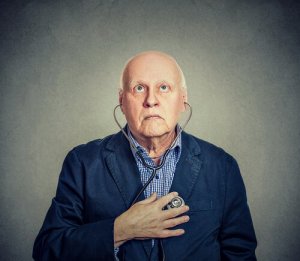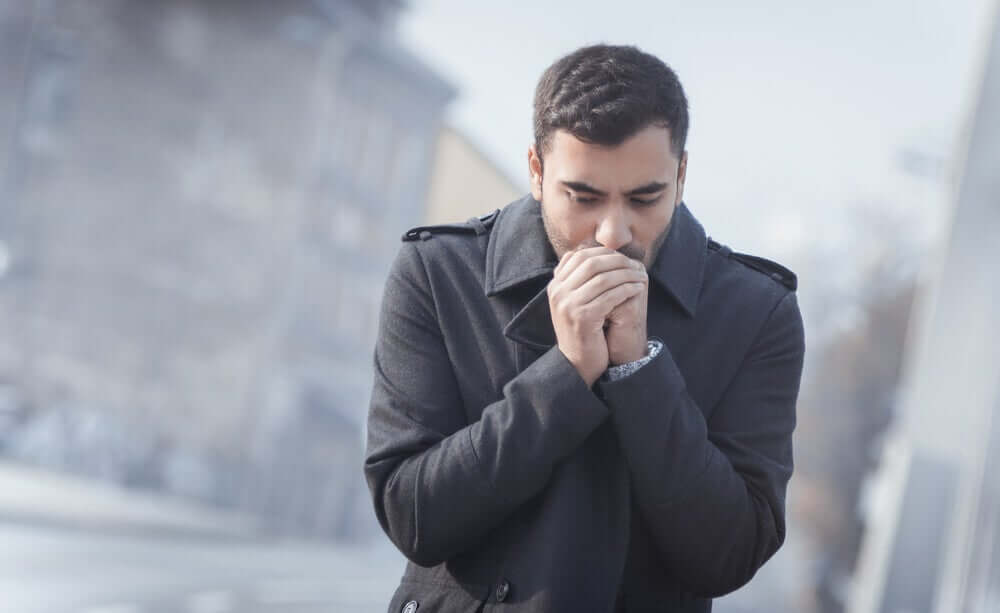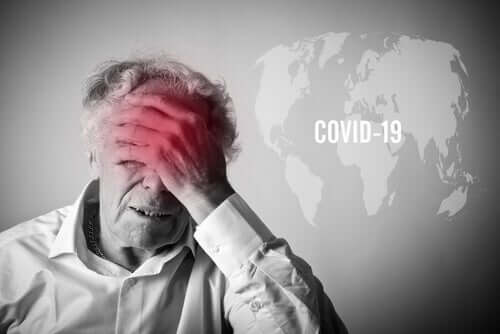Hypochondria and Coronavirus: What You Should Know


Written and verified by the doctor Leonardo Biolatto
One of the psychological phenomenons that have become very visible in the last weeks is that of hypochondria and coronavirus. This manifests itself on various levels. In the mildest cases, individuals suspect that they’ve contracted the virus and overinterpret any compatible symptoms, such as a simple sneeze.
In more severe cases of hypochondria and coronavirus, individuals may believe with certainty that they are carrying the illness and, what’s more, even develop several symptoms. However, in reality, they are healthy. These people suffer a great deal since they truly believe that they are ill and are not receiving the medical attention they require.
It’s important to keep in mind that the current pandemic has brought on a diverse array of consequences. Among them, we can’t ignore the mental and emotional consequences. The constant bombardment of information and the general state of alarm both contribute to a nearly continuous feeling of stress for everyone. Meanwhile, this leads to the phenomenon of hypochondria.
Hypochonria and coronavirus

Hypochondria is defined as a mental disorder in which the main characteristic is the fear of becoming ill. This fear brings the person to constantly analyze his or her physiological symptoms and repeatedly interpret them as an indication of some pathology.
There are many cases in which hypochondria really causes patients to develop physical symptoms. For example, these may include specific pains, for the most part, and some forms of paralysis, as well as other symptoms. The objective of those who suffer from hypochondria isn’t to fool others. Rather, they believe that they are, in fact, sick. Therefore, they really do experience symptoms.
The COVID-19 pandemic is an additional fear factor that everyone’s talking about non-stop. Under these circumstances, it’s logical for there to be an increase in the rise of both hypochondria and coronavirus. In other words, the current situation is a factor that leads to increased symptomology in most hypochondriacs.
You may also want to read: Common Myths about Coronavirus
The COVID-19 pandemic increases anxiety
Anxiety is a phenomenon that expresses itself in many ways and can lead to a wide variety of disorders. The most common of these disorders is a disproportionate fear of the future. In other words, it involves the expectation that their’s an impending threat that will cause major damage.
Under normal conditions, an anxious person will worry about what could happen, even if there are no real indicates of danger or risk. However, in our current circumstances, a real threat does in fact exist. Plus, what’s more, it’s already inflicting serious damage.
On top of that, there’s a sense of general uncertainty because, for the time being, they have yet to discern the way out. As a result, all of us end up developing some level of anxiety. However, when it comes to individuals who already suffer from anxiety, anxiety levels increase even more.
And for individuals with hypochondria, in particular, the current COVID-19 pandemic is the perfect storm.
Somatization and hypochondria

Even those who are psychologically stable experience a reasonable level of worry about what’s going on. No one’s comfortable hearing news about the spread of the virus or its victims, or the inevitable social and economic consequences. However, must of us can return to our normal state of mind and occupy our thoughts with other things.
However, a person who suffers from any degree of anxiety, whether or not it be pathological, may be experiencing more difficulty in this sense. For example, they may experience an obsessive interest in the issue and the applicable preventative measures, as well as the somatization of the illness itself. That is, individuals may suspect that they are manifesting symptoms without any real rationale.
In general, it’s more likely that an individual will seek confirmation using a thermometer (for example). In doing so, people who don’t suffer from hypochondria often become aware of their mistake and stop worrying about it.
Cases of hypochondria are much more severe. These individuals have a weakened ability to evaluate their situation objectively and come to a reasonable conclusion. Rather, they will believe that they are, in fact, ill. What’s more, they’ll likely consequently believe they’re the victims of the negligence of others who refuse to diagnose and treat the infection.
Discover more: How Long Does Coronavirus Last on Different Surfaces?
What to do in the case of hypochondria and coronavirus
We’re all aware of the protective measures that health organizations have recommended since the beginning of this outbreak. But on top of quarantine, social distancing, and handwashing, we must add one more thing: Caring for our mental health.
So, this is another area where we need to protect ourselves. First of all, we should refrain from taking in a catastrophic amount of information.
Of course, this doesn’t mean blocking our all information and pretending like nothing’s going on. However, it’s important to limit the amount of time you spend reading or watching the news and allow your mind to focus on other things. Breathing exercises, exercising and meditating help a lot.
In the case of hypochondriacs, it’s very important not to contradict their ideas. This will only increase their sensation of vulnerability. It’s important to continue any medication and stay in touch with a therapist who can provide orientation about what they can do to feel better.
All cited sources were thoroughly reviewed by our team to ensure their quality, reliability, currency, and validity. The bibliography of this article was considered reliable and of academic or scientific accuracy.
- de León, S. P., Arévalo-Ramírez, M., Santiago-Ventura, Y., González, J., & Muñoz, M. D. C. L. (2010). PERCEPCIÓN DEL RIESGO, IMPACTO EMOCIONAL, EFECTO DE LOS MEDIOS DE INFORMACIÓN Y CUMPLIMIENTO DE LAS RECOMENDACIONES SANITARIAS EN LA CONTINGENCIA POR INFLUENZA A-H1N1. Comité Ejecutivo de la Asociación (2010-2011), 8.
- Natenzon, C. (1995). Catástrofes naturales, riesgo e incertidumbre. Serie de Documentos e informes de investigación, 197, 1-21.
- Ortiz, M. F. B., & Tarreros, Á. P. Salud mental y crisis sanitarias.
This text is provided for informational purposes only and does not replace consultation with a professional. If in doubt, consult your specialist.








